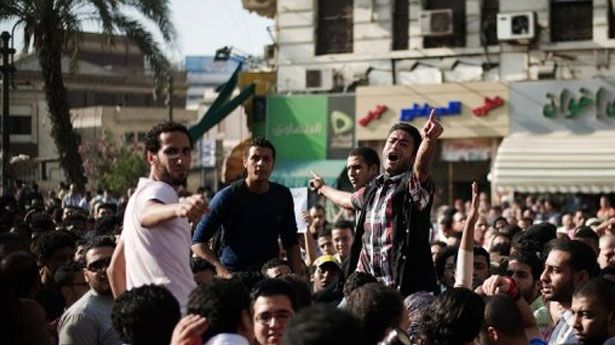TYRE: A powerful bomb struck a UN peacekeeping patrol in the Lebanese coastal town of Tyre on Friday, wounding five French soldiers and a civilian, a security official said.
The official, who requested anonymity, said the bomb was hidden under dirt on the side of the road and was detonated as the soldiers were driving by in a Jeep at an intersection in the eastern part of the town.
Two of the wounded soldiers were taken to hospital while the three others — a woman and two men — were seen by an AFP correspondent standing by their badly damaged vehicle with bandages on their heads.
One of them had a bloodied face. It was unclear how badly injured the Lebanese civilian was.
The blast left a one-meter (three-foot) deep crater.
Security forces and soldiers from the UN Interim Force in Lebanon (UNIFIL) cordoned off the area as hundreds of onlookers gathered nearby.
UNIFIL spokesman Andrea Tenenti confirmed that a vehicle from the UN peacekeeping mission was hit by an explosion in Tyre, and said a probe was underway.
Lebanese Prime Minister Najib Mikati immediately denounced the attack while stating his solidarity with UNIFIL.
"Such attacks don’t only target UNIFIL but also Lebanon’s stability and security," Mikati said in a statement.
UNIFIL patrols have been the target of a string of unclaimed roadside bomb attacks in recent years, including two in 2011.
In July, six French UNIFIL troops were wounded, one of them seriously, in a similar attack as Friday’s in the southern coastal town of Sidon.
And in May, six Italian peacekeepers were wounded in Sidon, also in roadside bombing.
In the worst attack, three Spanish and three Colombian peacekeepers were killed in June 2007 when a booby-trapped car exploded as their patrol vehicle drove by.
Friday’s blast took place amid heightened tension over the bloody uprising in neighboring Syria, with politicians and diplomats warning the unrest could spill over into Lebanon, whose government is dominated by the pro-Syrian militant group Hezbollah.
There have been constant fears that the UNIFIL force, which is stationed in the south of the country, would be an easy target should the unrest reach Lebanon.
MP Marwan Hamadeh, a member of the Western-backed opposition in Lebanon, blamed Damascus for Friday’s attack, saying it was orchestrated with the help of its ally Hezbollah.
"It is clear that Syria was behind what happened today and the messenger was Hezbollah," he told AFP. "Nothing happens in that region without Hezbollah’s approval."
He added that the fact that the blast took place near a Palestinian refugee camp was only aimed at sowing confusion.
"The Syrians have accused France of being at the forefront of what they believe is a foreign plot to destabilize their country and everyone felt that something was bound to happen," Hamadeh said.
Spain currently commands the 12,000-strong UNIFIL force, which was founded in 1978 and was expanded after a devastating 2006 war between Israel and the Lebanese Shia militant group Hezbollah.
After Italy, France forms the largest contingent with 1,600 soldiers. It is followed by Spain, with 1,100.

